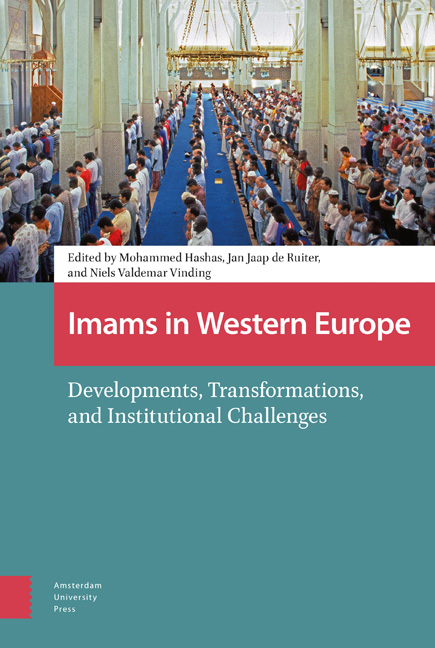12 - Towards a Typology of Imams of the West
Published online by Cambridge University Press: 06 January 2021
Summary
Abstract
To understand the relevant and significant differences between imams of the West, this chapter suggests a typology of imams according to variations of institutional authority – that is, the significant dimensions of institutionally embedded authority available in the West – and what has been called epistemic authority, which emphasizes the primacy of knowledge-based authority in Islam. Focussing specifically on Islamic authority and providing relevant examples of imams that embody authority, the typology expresses the cross tabulation between the diverse institutional frameworks in the West and Islamic knowledge personified. This relationship between institutional authority and epistemic authority, its explanatory power and the actual imams, who exemplify them, is a telling indicator of the directions and future challenges of Islam in Europe.
Keywords: Imams in the United Kingdom, Germany, and Austria, typology of imams, chaplaincy, institutional and epistemic authority
Introduction
This chapter draws on the preliminary interviews from the research project titled ‘Imams of the West’ (2014-2017) and is an attempt at structuring and ordering the diverse types of imams in the West. The objective of the overall research project is to explore how imams are understood in the divide between Islamic authority and Muslim leadership in the West. Based on qualitative interviews of about 50 imams in Europe and North America (‘the West’), the study falls at the intersection between Islamic studies and sociology of religion. It investigates how the Islamic religious institution of the imam changes in the challenging encounter with a global, multicultural, and post-migration ‘Western’ world.
The argument in this chapter is that one meaningful and appropriate way of organizing the diverse types of imams in the West – as well as, perhaps, in the rest of the world – is according to the relevant kinds of authority at play amongst them in the religious-organizational field (Rosenow-Williams, 2012; Vinding, 2013). Exploring authority with its associations of power, control, or legitimate rule is an especially acute concern for any study of imams that seeks to understand how and to what degree diverse types of imams have authority through delegation, and to what extent they are authorities because of certain qualities or capacities that they have as individuals.
- Type
- Chapter
- Information
- Imams in Western EuropeDevelopments, Transformations, and Institutional Challenges, pp. 231 - 254Publisher: Amsterdam University PressPrint publication year: 2018



